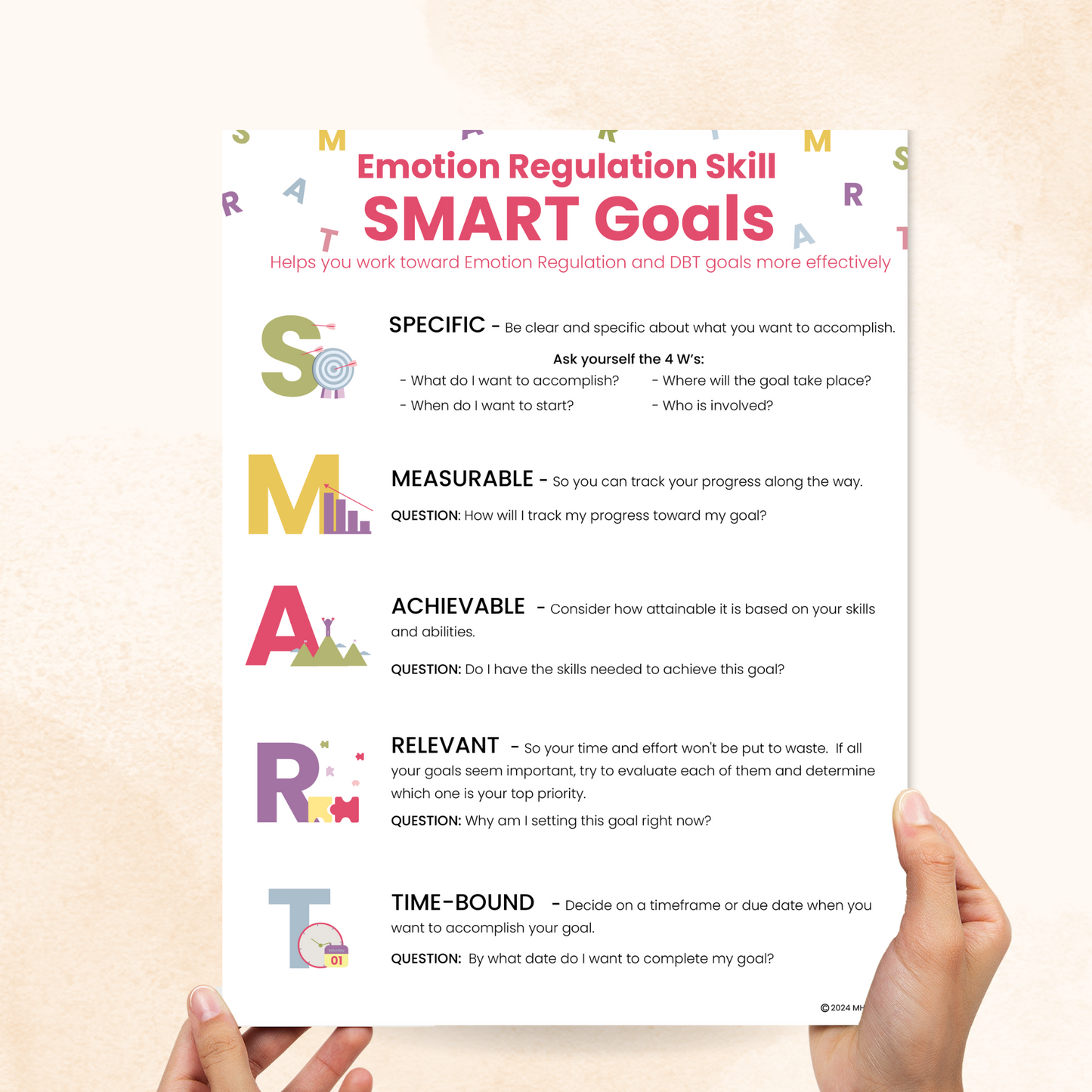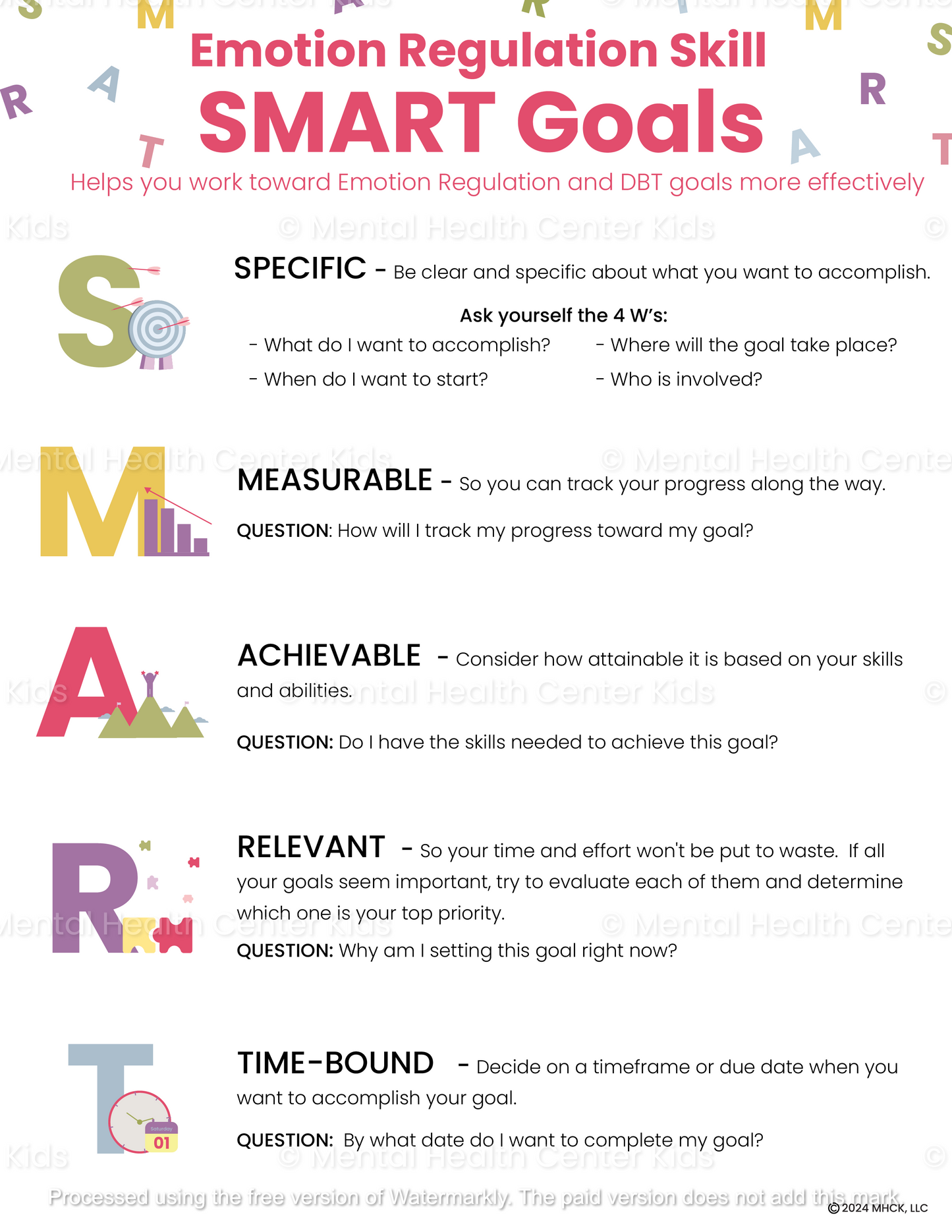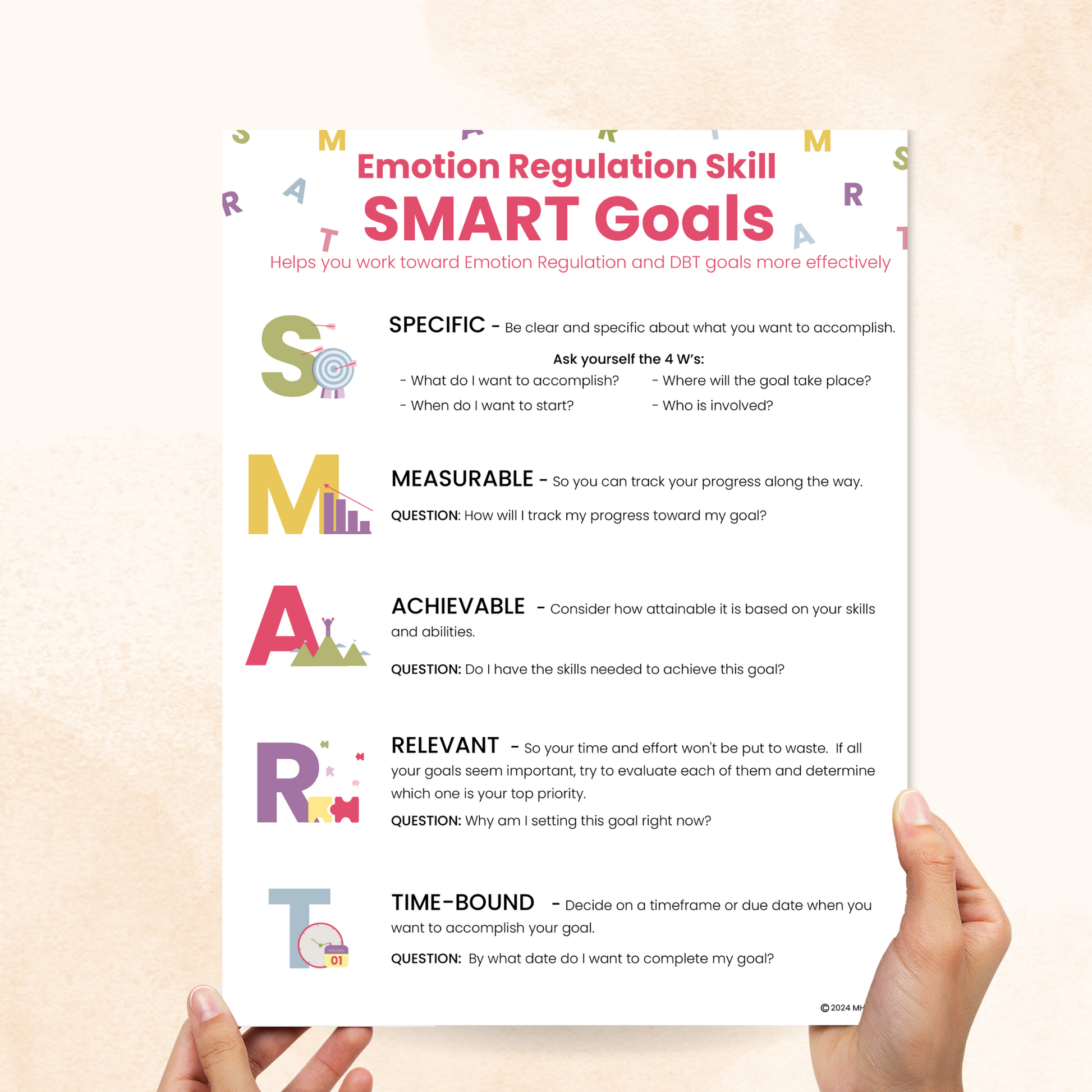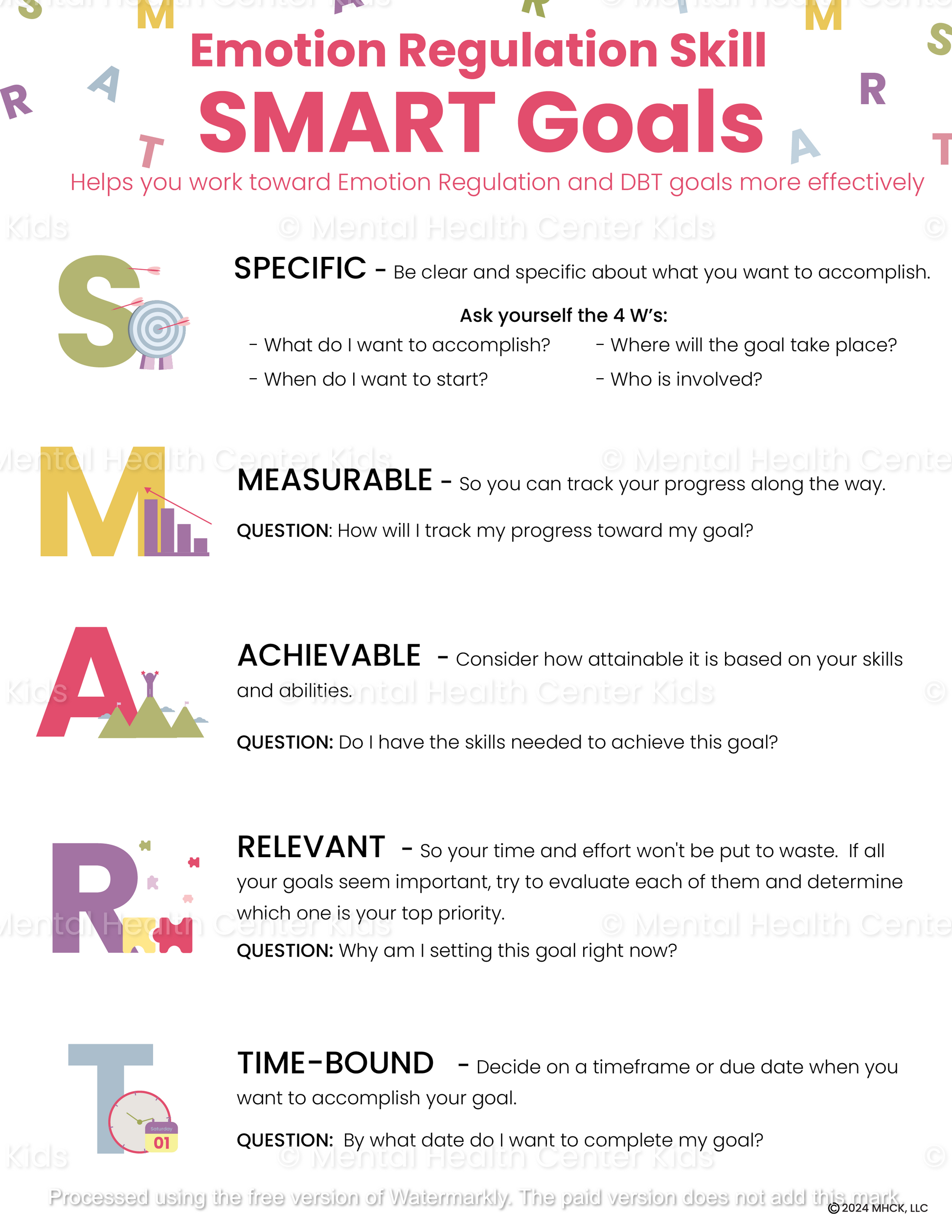DBT SMART Goals (PDF)


Goal-setting is an effective way of motivating oneself and others. A well-defined goal fits the SMART (Specific, Measurable, Achievable, Relevant, and Time-bound) goal-setting concepts. This can help clients develop a clear purpose and strategy to accomplish their personal or therapy-based goals. SMART goals should be specific and clear to measure your progress within your means or resources while being objective and timely.
The DBT SMART Goals PDF handout shares general information about how clients can achieve their DBT goals through SMART goal-setting concepts. Each category includes questions like the 4 W’s of what they want to accomplish, how will they track their progress, if they have the skills needed to achieve this goal, and more.
Learning SMART goals can help kids and teens stay focused in their efforts to utilize DBT strategies in pursuit of their emotional regulation, behavior management, or interpersonal goals. After using the handout, your child can practice setting SMART goals using this creative tip: they can decorate a jar, which they call a “goal-getter jar” and fill it with tiny pieces of paper. Each paper contains a SMART goal related to a DBT skill or personal goal they can accomplish each week.
Our DBT SMART Goals worksheet can be paired with this handout to put the skill into writing. We also offer a general SMART Goals handout unrelated to DBT.
*This item is an instant digital download. A link to download your files will be emailed to you once payment is confirmed.
Want more resources like this? Check out our full catalog of DBT worksheets and handouts.
References:
- Doran, G. T. (1981). There’s a SMART way to write management’s goals and objectives. Management review, 70(11), 35-36.
- Locke E.A. (1968). Toward a Theory of Task Motivation and Incentives. Organizational Behavior & Human Performance, Vol. 3, pp. 157 – 189
- Locke E., Latham G. (2006). New Directions in Goal-Setting Theory. Current Directions in Psychology Science Vol. 15 (5), pp. 265 – 268. [online] [22.11.2016]. Available at https://home.ubalt.edu/tmitch
- Van Herten, L. M., & Gunning-Schepers, L. J. (2000). Targets as a tool in health policy: Part I: Lessons learned. Health Policy, 53(1), 1-11.
- Instant digital download
- File: PDF
- Size: 8.5" x 11"



